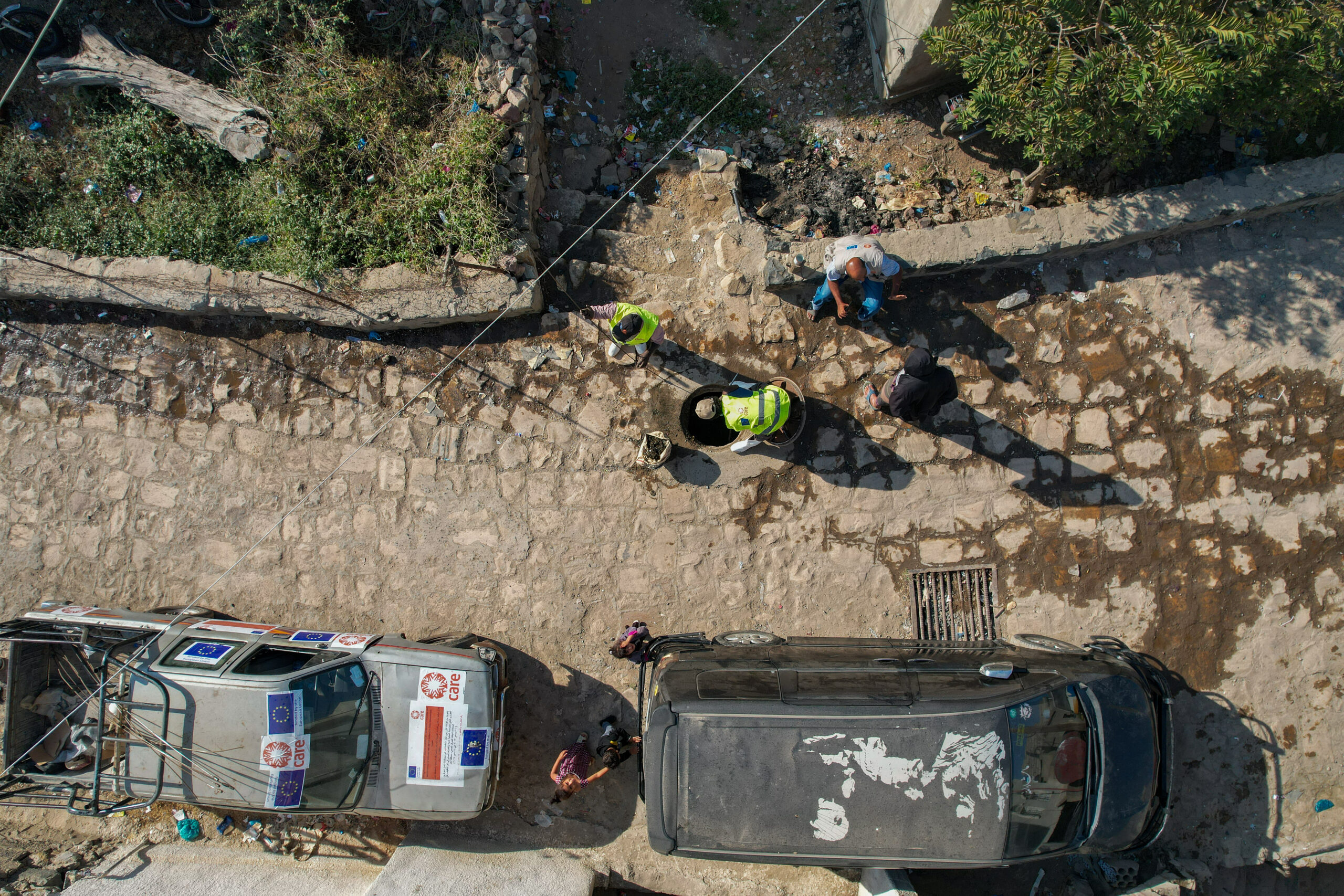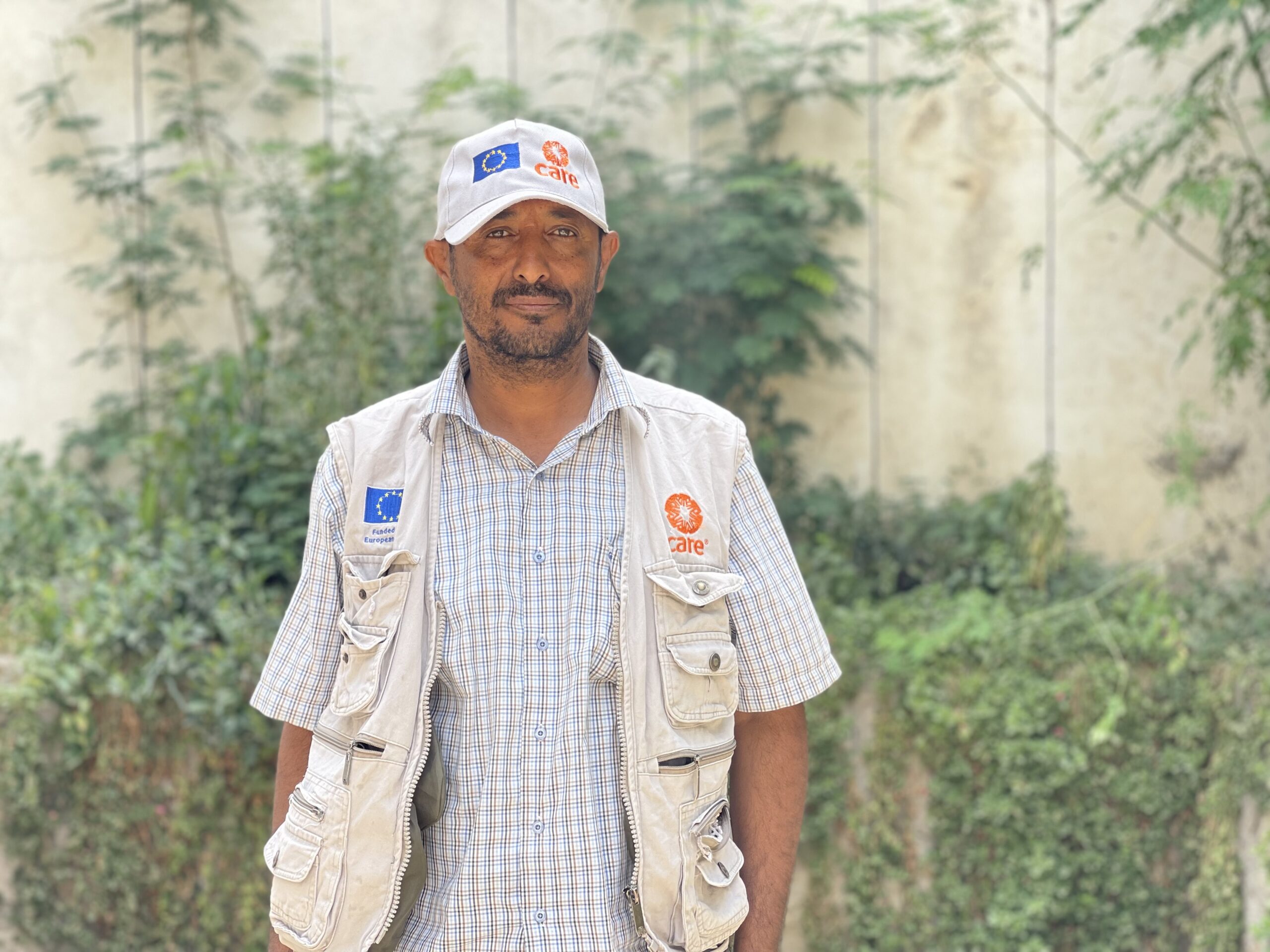Amidst the war, sewage overflow inundated the entire city, leading to rampant epidemics. When the conflict subsided, we endeavored to resume our work, but numerous employees remained unable to return to the city. Salaries were not paid, and we now receive meager amounts of money, insufficient to meet our needs—especially given the currency collapse. Consequently, many employees left their positions, leaving the institution with weak capabilities. As a result, clogged sewers persist due to our inability to permanently address this pressing issue.
During that challenging period, epidemics swept through our community, causing the death of a number of residents. When it rained, the sewage channels would overflow, some of which would enter the homes, and residents could not move between the neighborhoods due to the sewage water and the spread of unpleasant odors. We were trying to cover needs as a result of this disaster with the means available to us, but unfortunately, we were not able to meet all the needs. Two workers also died while working on cleaning sewage due to the odors and fume due to the lack of protective equipment.
Natural disasters and environmental hazards represent a major threat to the lives, livelihoods and well-being of many communities across Yemen, often contributing to displacement and increased vulnerability, and putting additional pressure on infrastructure and essential services. Yemen’s vulnerability to climate change is indeed concerning. With an INFORM Climate Change Risk Index of 8.1, it ranks third among the most vulnerable countries. The lack of preparedness exacerbates the situation, leaving Yemen ill-equipped to handle climate shocks. The accelerated temperature rise over the past three decades further compounds the challenges faced by its communities. Efforts to address these issues are crucial for the well-being of Yemen’s population.
In August 2022, 80 per cent of the country received heavy rainfalls, with a cumulative amount of about 2,500 millimeters. This was 45 per cent higher than the rainfall experienced in August 2021, triggering devastating floods across the country that affected hundreds of thousands of people. Continuous rainfall causes sewage to flow into the lanes, causing epidemics to spread.
With funding from the European Union (EU), CARE supports the Water and Sanitation Office in Taiz with protective equipment and provides incentives for 16 workers during six months to clean the sewer blockages to prevent sewage from flowing out, to help eliminate many risks, including the spread of epidemics. A total of 59,536 families benefit from this activity in three districts of Taiz city.
Throughout the project duration, we diligently cleared all sewage points of blockages. As a result, we observed a significant improvement—the sewage no longer overflowed as it previously did. The outbreak of dengue fever has also decreased significantly in the city. Also, the money we earned, helps us to provide needs for our family, and I also paid school fees for my children. Some workers also bought a motorcycle as a means of transportation and as a source of income. These amounts served as a motivation for many workers to complete the work. Thanks to those who helped us, now our city is clean and the workers have the protective equipment to work without fear from death.
To improve preparedness against disasters, CARE strengthens existing governmental and community-based systems as well as grass root disaster preparedness and response structures. As proven in the CARE-led Forecast-based Action (FbA), creating and strengthening institutional links, advocating for contingency planning, and building capacity of local authorities is key to creating structural changes to deal with disasters in a way that gets government and communities to take ownership of systems, thus ensuring sustainable changes. CARE conducted training on how to reduce the climate change risks for the water and sanitation sector employees along with employees of other sectors in local authorities. They also attended another training course to prepare an emergency plan on environmental risks and disasters and an early warning mechanism in response to climate changes in Taiz Governorate which will help them to reduce the risks of climate change.



